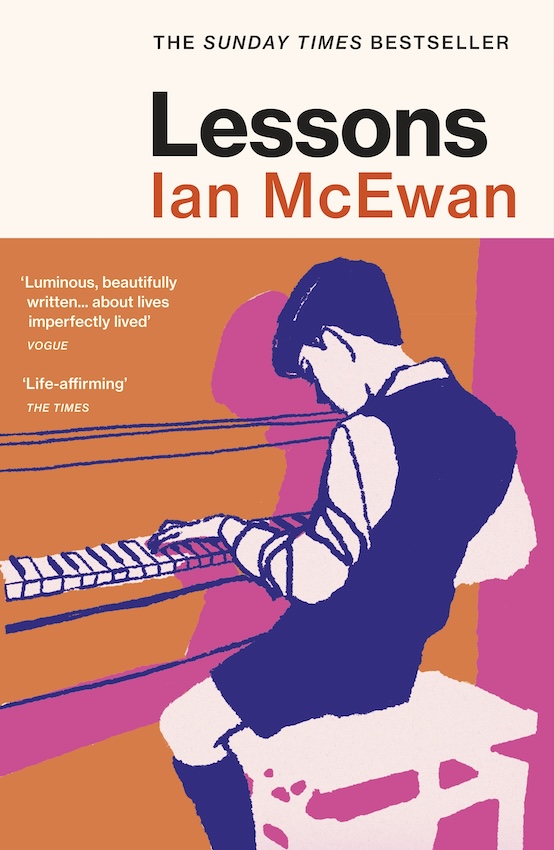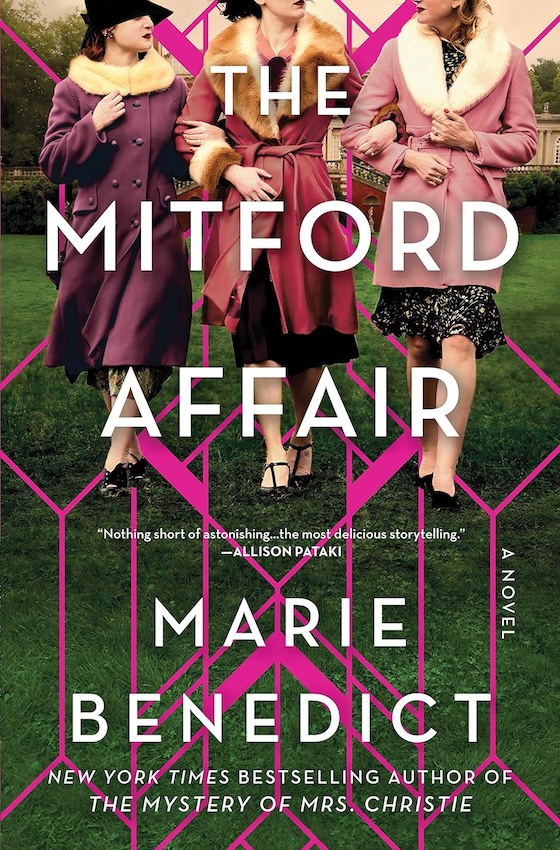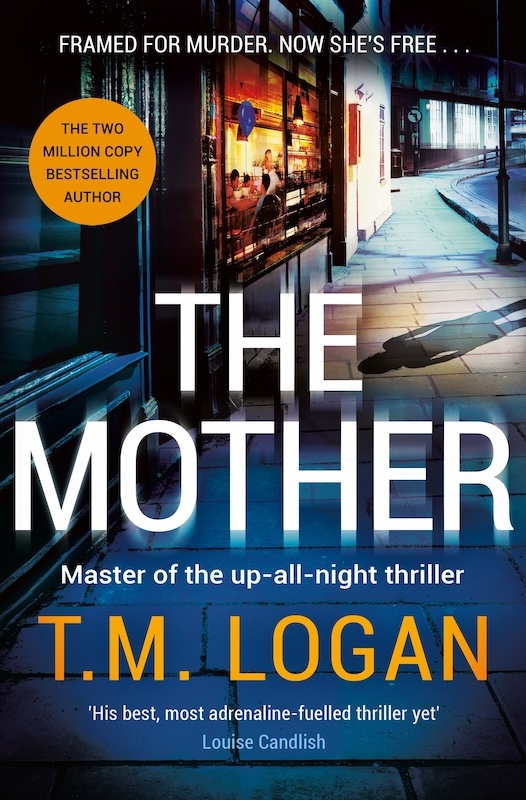
Ian McEwan is usually a reliable author, one I’ve turned to before anticipating a satisfying and intelligent read. And that’s pretty much what you get with Lessons. The story follows Roland Baines from his childhood and delivery to an unusual boarding school – we’re in the late 1950s – through his schooling and into adulthood, and on to the present day. Critical to his story are the lessons he has at school with a predatory and obsessive piano teacher.
Rolande’s experiences, the grooming and sexual predation by Miriam Cornell, have an ongoing effect on his life. At first the story weaves these scenes from school with a police enquiry into the disappearance of Rolande’s wife Alissa in the 1980s. She has left a note and sent postcards from Europe, so there’s no obvious reason to suspect foul play, but DI Browne wants to be sure. Roland has been left holding the baby, literally, seven-month-old Lawrence.
The story meanders through the years bringing the past up to the time of Alissa’s vanishing and beyond and along with Roland’s story we have key moments of recent history. There’s the Cuba Missile Crisis, which is what sends Roland into a spin, cycling towards danger and Miss Cornell. There’s the fall of the Berlin Wall, another key factor in Roland’s life, the rise of New Labour and much more. Roland is a political animal and there are groups of friends around the dinner table, and lively discussions.
Throughout, Roland considers the effects of broader events in history on his path through life. It is obvious that Roland had potential to have a solid career in something, possibly even as a concert pianist. But failing at school and then bringing up a child on his own have led to a working life that is a cobbling together of hotel piano playing, occasional journalism, and tennis coaching. He’s also a terrific dad. He has relationships with other women but most of them don’t stick. Has he been ruined emotionally by Miss Cornell?
Against his chest he felt the baby’s heartbeat, just under twice the rate of his own. Their pulses fell in and out of phase, but one day they would be always out. They would never be this close. He would know him less well, then even less. Others would know Lawrence better than he did, where he was, what he was doing and saying, growing closer to this friend, then this lover. Crying sometimes, alone. From his father, occasional visits, a sincere hug, catch up on work, family, some politics, then goodbye. Until then, he knew everything about him, where he was in every minute, in every place. He was the baby’s bed and his god. The long letting go could be the essence of parenthood and from here was impossible to conceive.
And yet all in all, Roland’s has been a good life. A life rich in people, experiences and love. He hasn’t been a big achiever; he’s had to be a parent, rather like the lives of many women. So there’s a feminist message here too – not only through Roland, but in the stories of Alissa, her mother and Roland’s mother too.
Roland’s a likeable protagonist, which is just as well as we are with him throughout all the things in life that trouble everyday people. What secrets have his parents kept all these years? How will a new government affect things? Or even, are we on the brink of another world war? The tiny things as well as the broader issues. It’s a novel full of wisdom, and the gaining of it, and I suppose these are also the lessons of the title.
For quite a way through I thought nobody, and certainly not Roland, was learning any lessons. He really does seem to bumble along, reacting to things, rather than making decisive steps in any direction. But he mostly gets there in the end and there are some memorable scenes. McEwan creates these beautifully. The scenes with Miss Cornell are somewhat creepy, but affecting.
While not especially long, it’s a monumental work, and I admire Lessons hugely, but somehow it felt at times rather a slog. I think this is down to the lengthy timescale of the book and also the way it lingers on life’s more difficult moments, of life slipping away, of our mortality. You can relate to this for sure, but you long for lightness and hope. In the end I was glad to have read Lessons, but certainly glad to finish it too. So it’s a four-star read from me.








